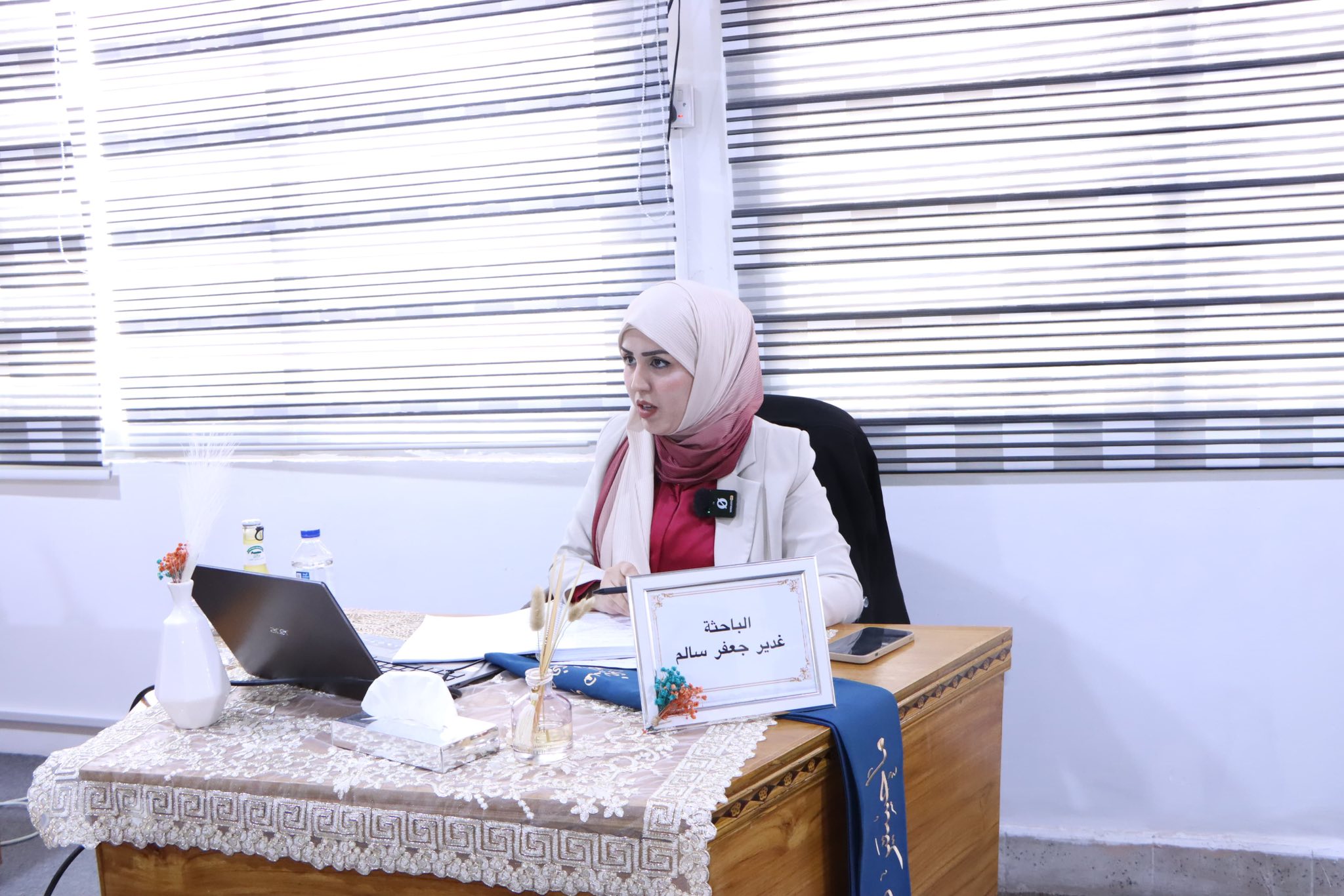
The College of Education for Pure Sciences, Department of Chemistry, reviewed a master's thesis entitled:
(Evaluation and Study of the Biochemical Relationship between American and Non-Enzymatic Antioxidants and Some Trace Elements in Patients with Celiac Disease in Basra Governorate)
The thesis, presented by researcher Ghadeer Jaafar Salem, included a study of celiac disease, one of the most common autoimmune disorders. This disease causes malabsorption of food upon ingestion of gluten, leading to various health problems in those affected. In Basra Governorate, there is increasing interest in understanding the biochemical aspects of the disease to improve diagnostic and treatment methods.
This study aimed to evaluate the status of antioxidants, trace elements, and blood lipids in patients with celiac disease, considering these as important indicators of oxidative stress levels and overall health. The study included 91 participants, both patients and healthy individuals, and employed advanced analytical techniques to examine vitamins A and C, antioxidant enzymes (CAT and GPx), zinc and copper, and blood lipid components. The results showed a clear deficiency in certain antioxidants in the patients, particularly GPx enzyme and vitamin A, along with indicators of dyslipidemia such as elevated triglycerides (TG), very low-density lipoprotein (VLDL), and low good cholesterol (HDL). These changes suggest increased levels of oxidative stress, which may raise the likelihood of future complications.
The study concludes that patients with celiac disease suffer from a weakened antioxidant defense system and impaired lipid metabolism, necessitating careful dietary monitoring and increased antioxidant intake to mitigate the health effects associated with the disease
 .
.







